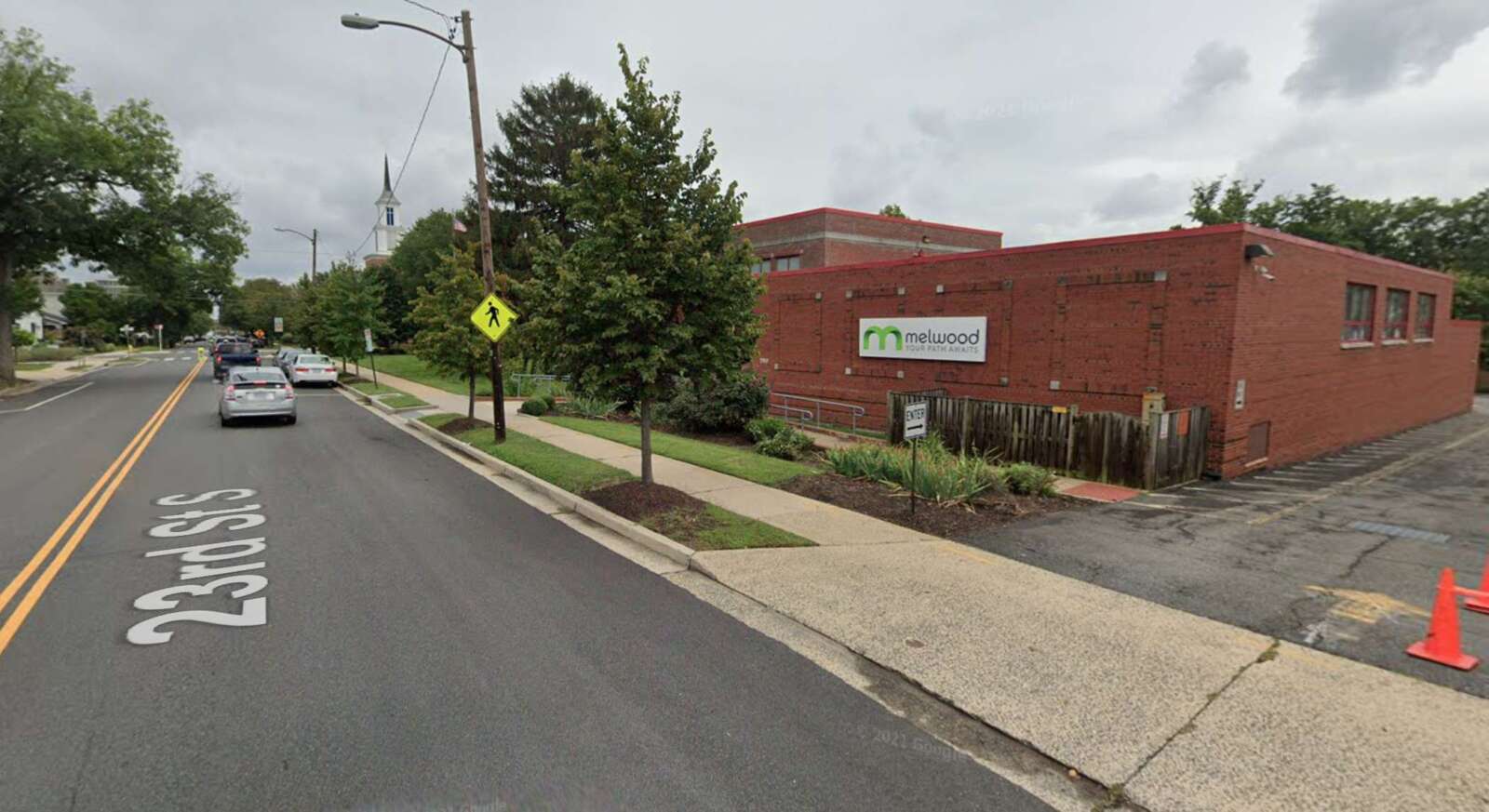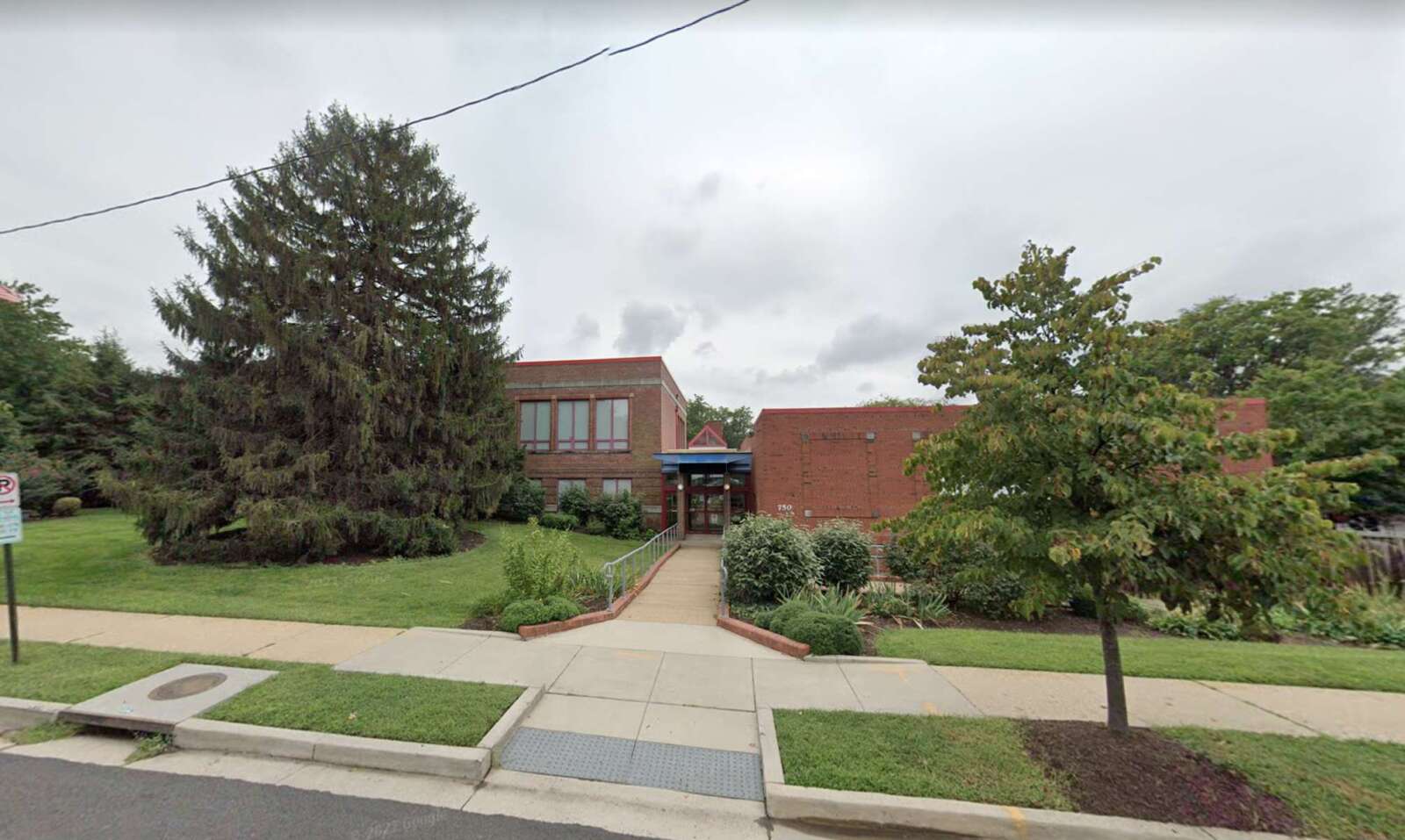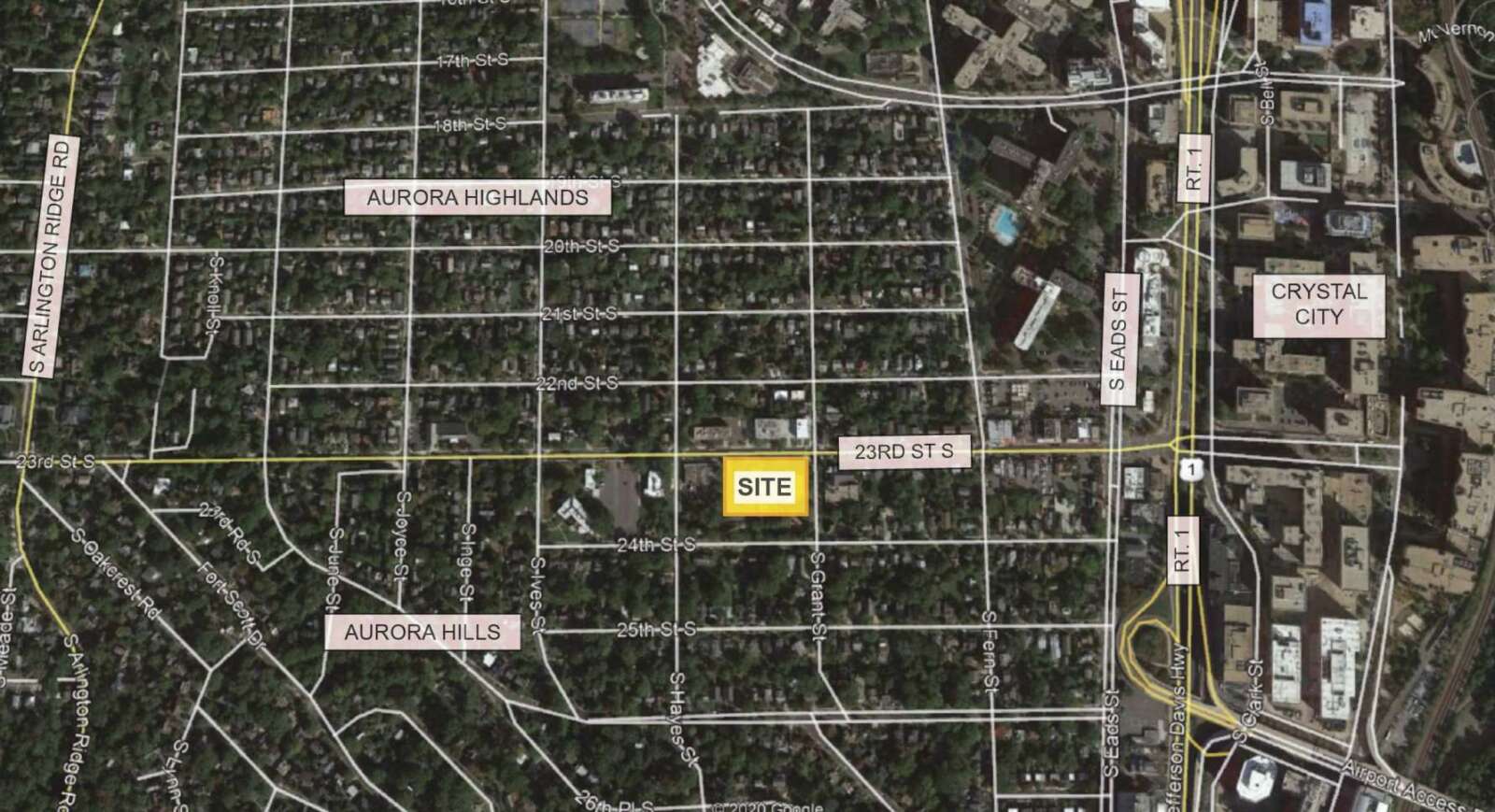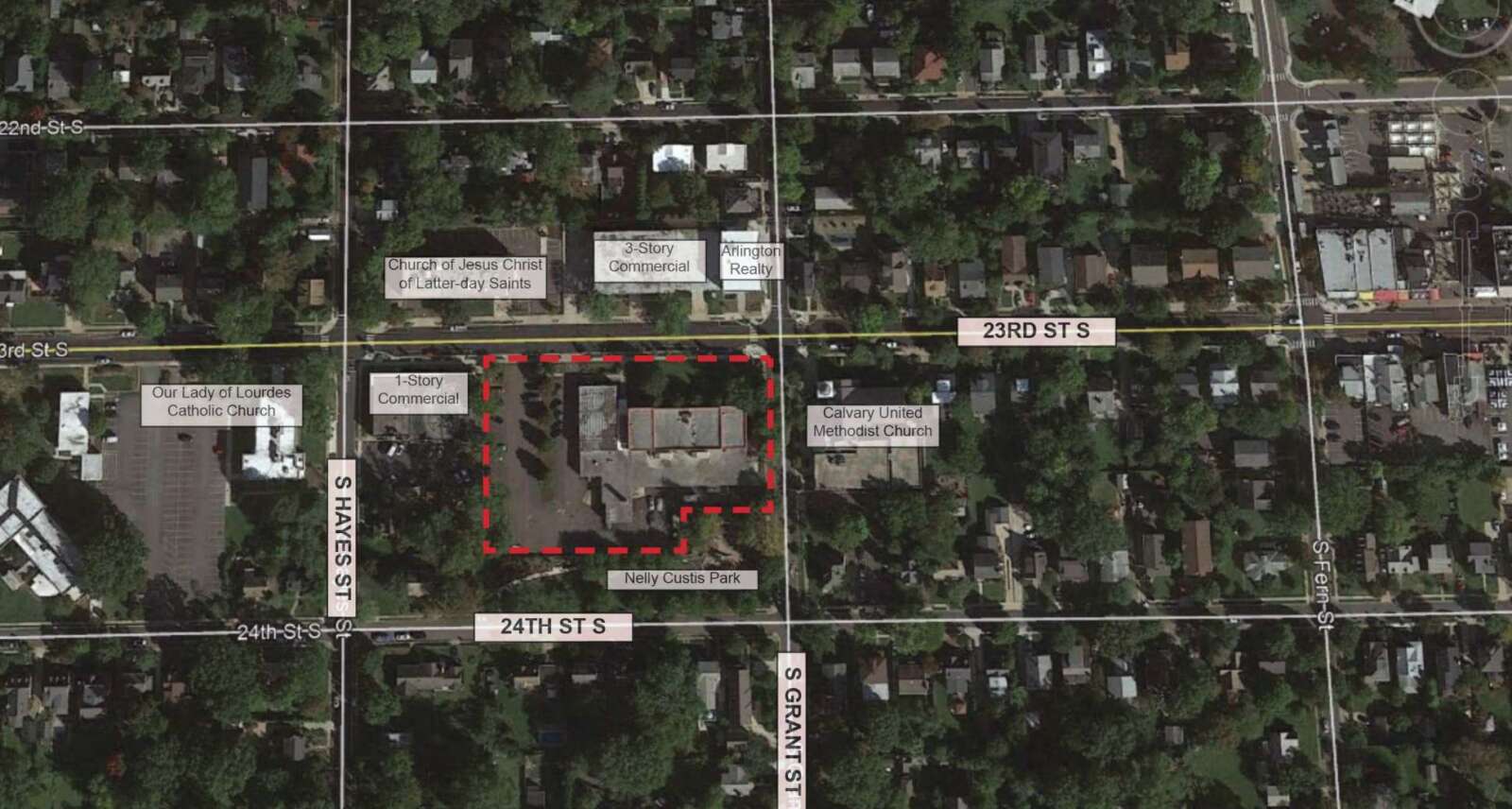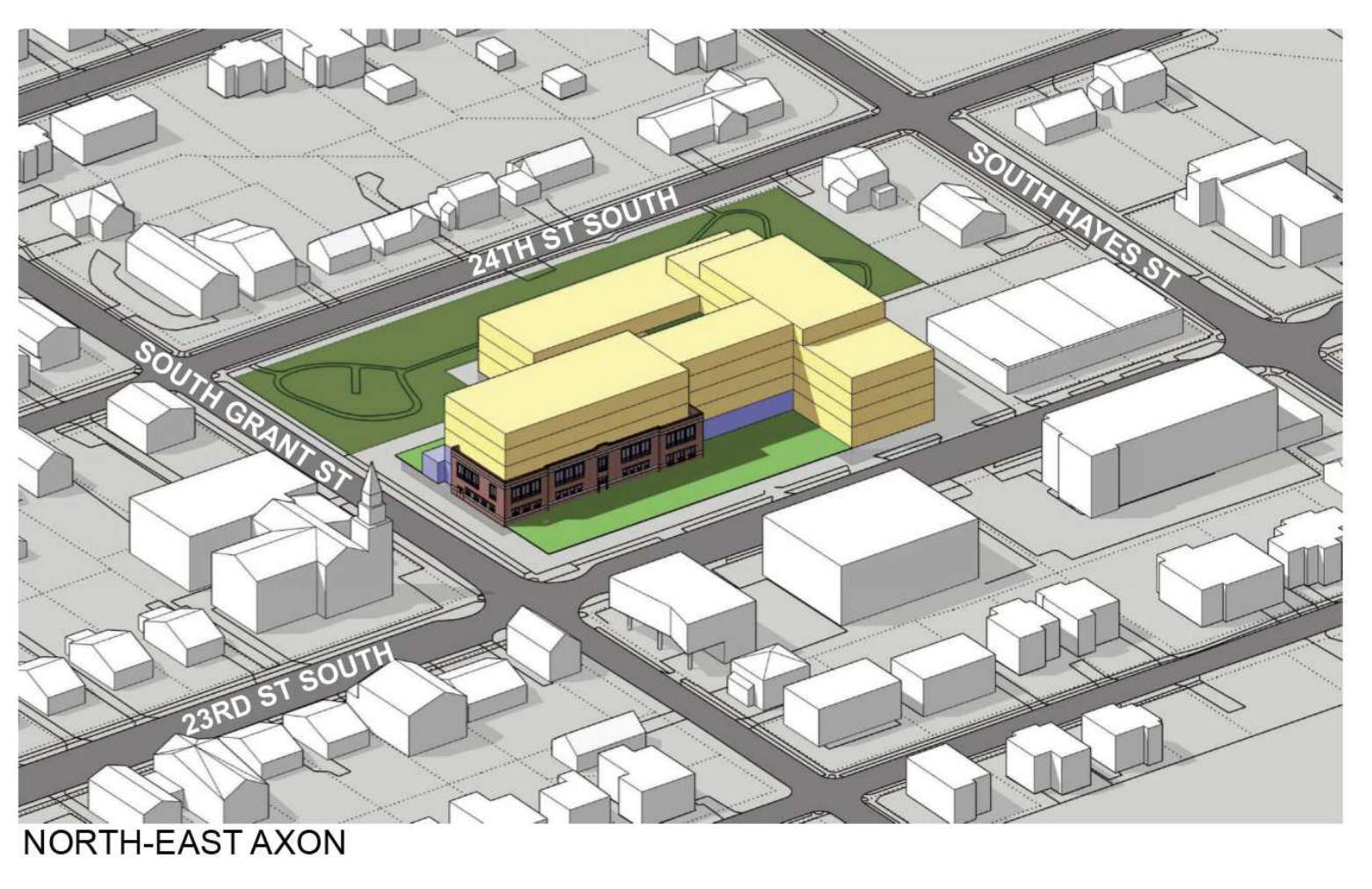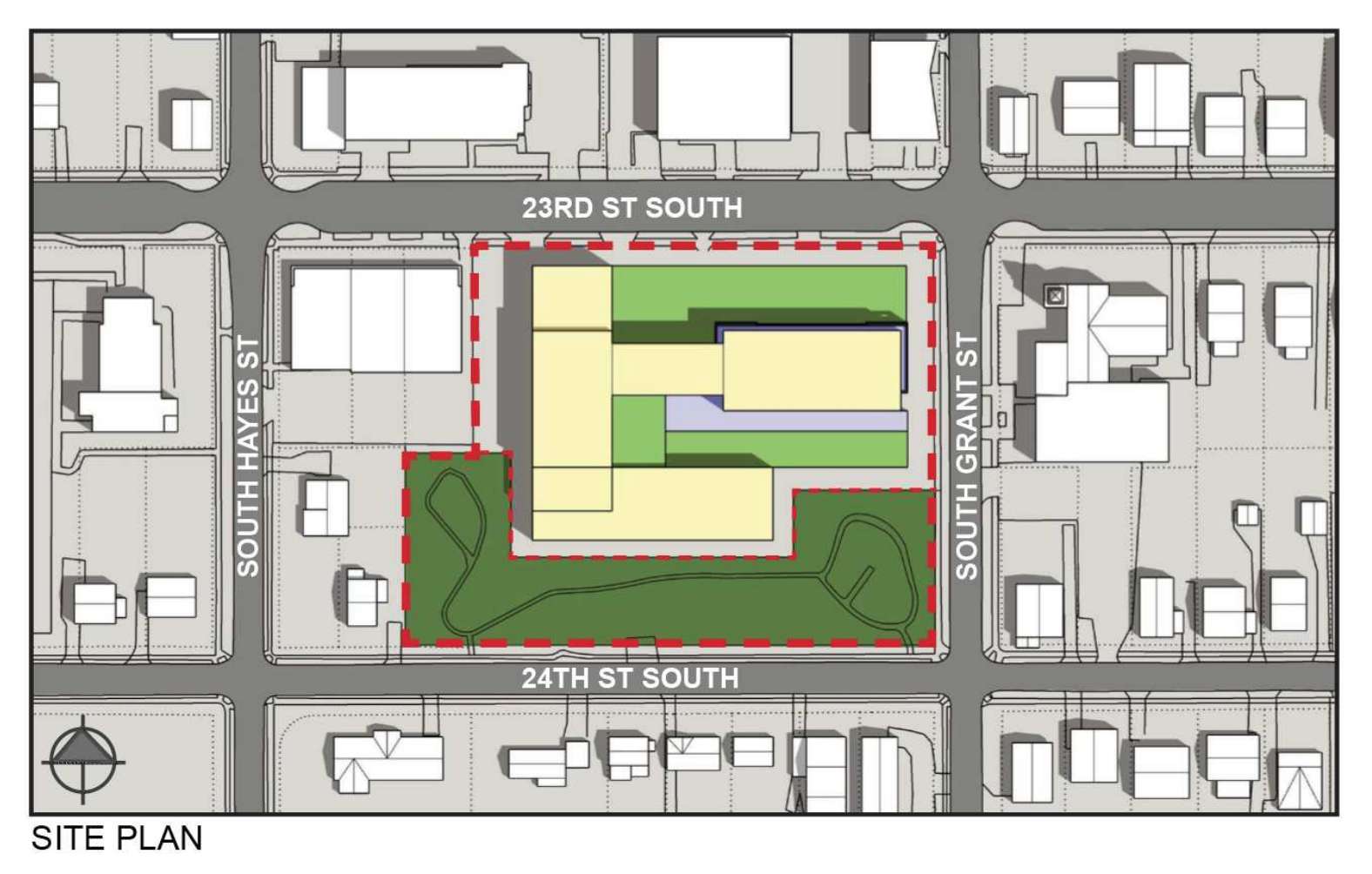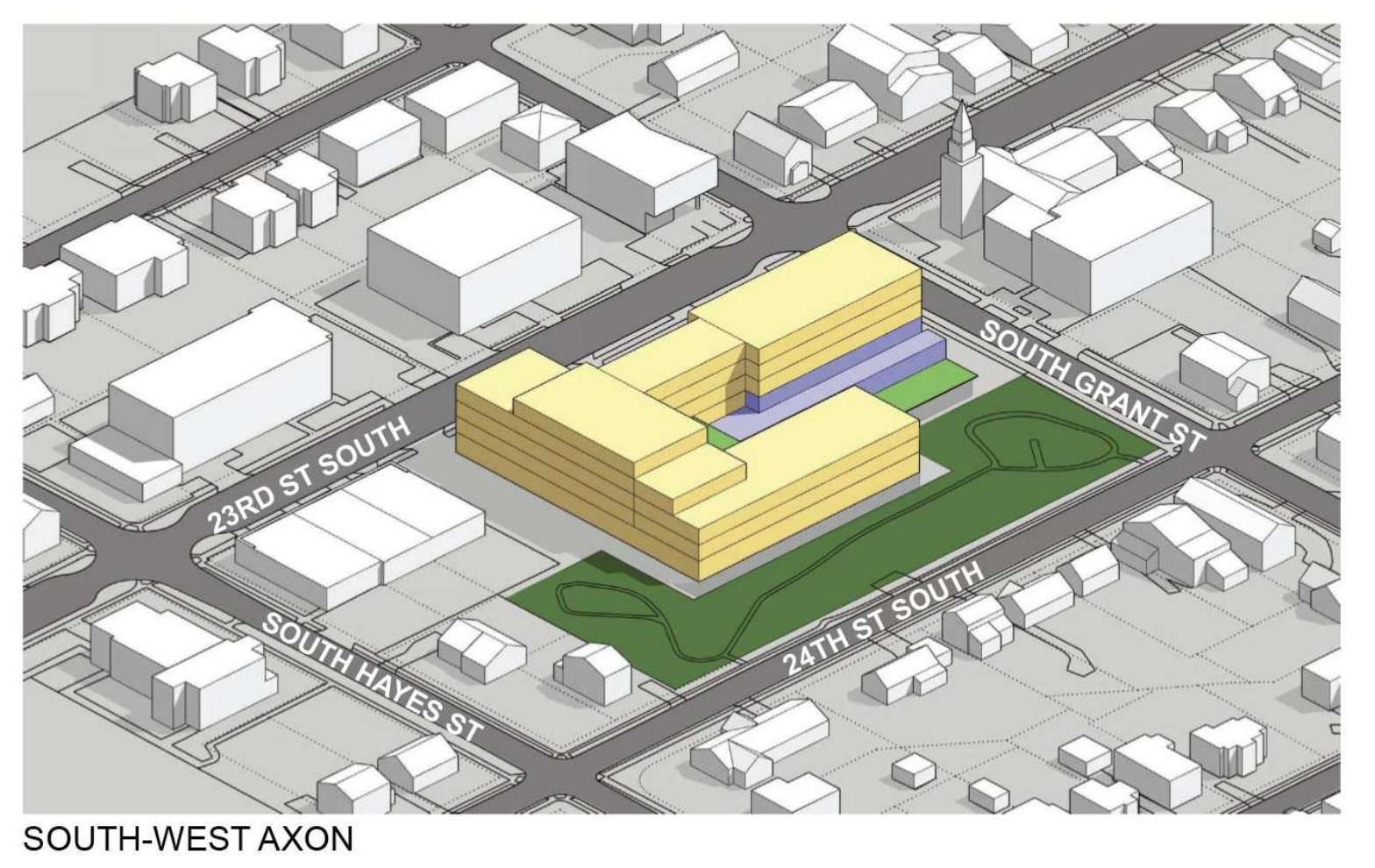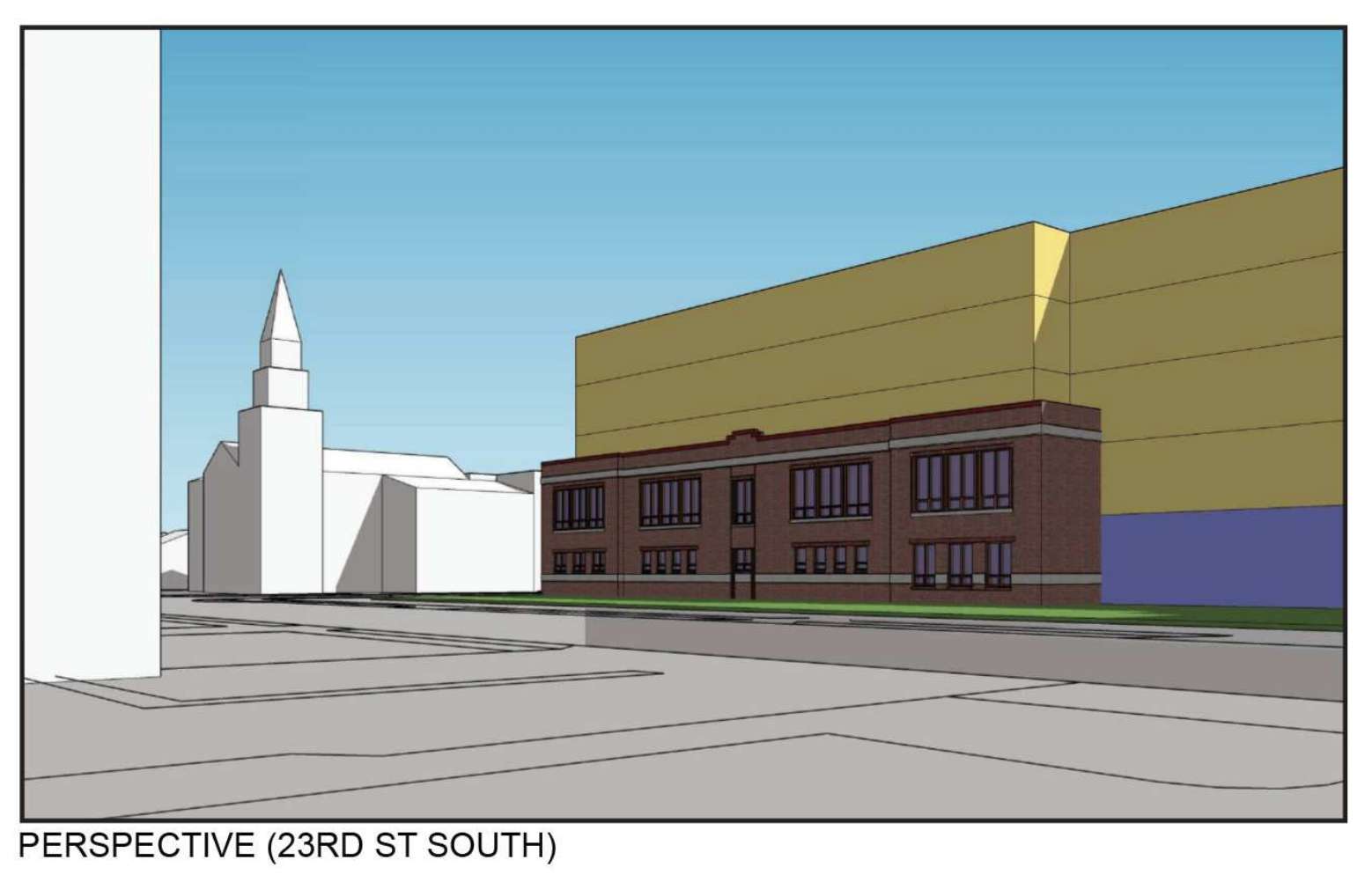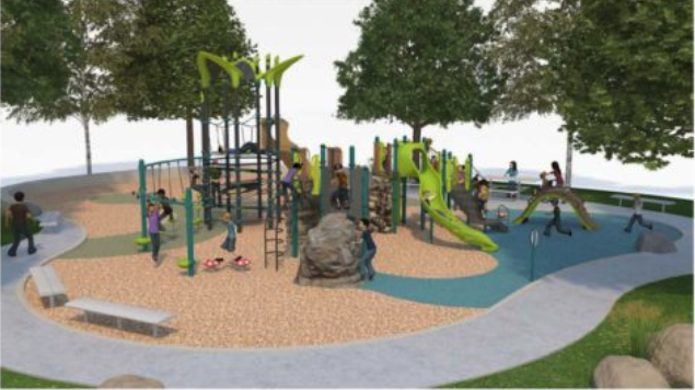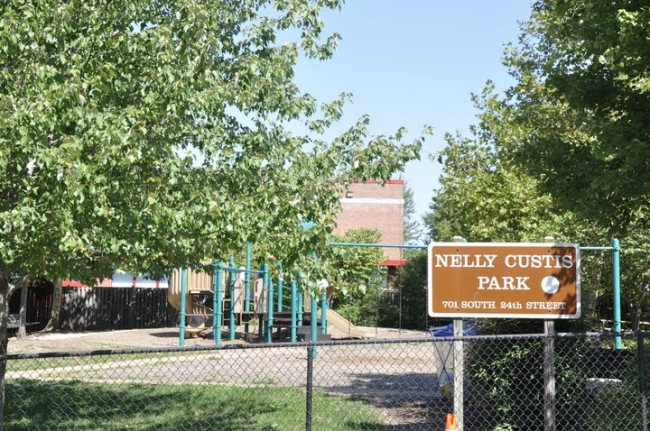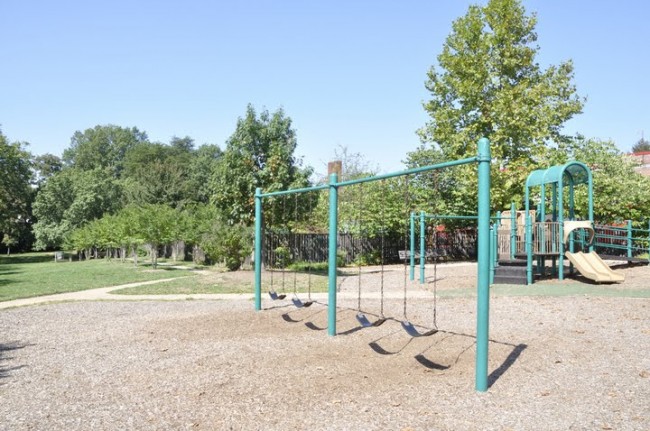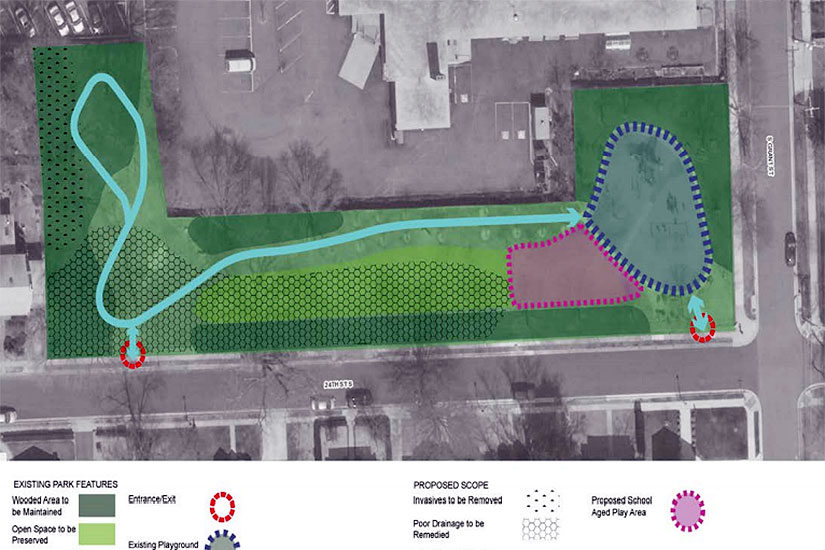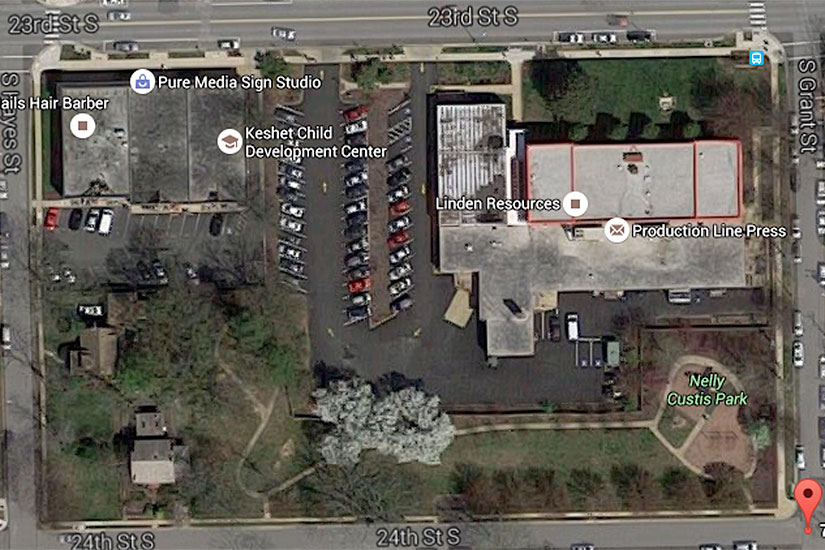(Updated at 5:40 p.m.) A local nonprofit intends to redevelop and add affordable housing for people with disabilities to its property near Crystal City.
Melwood, which connects people with disabilities with public- and private-sector jobs and opportunities, currently runs a workforce development site from the building at 750 23rd Street S., in the Aurora Highlands neighborhood.
It envisions redeveloping the property into a 100% affordable, 104-unit building with about 30 units set aside for people with disabilities. The five-story building would also house workforce development services and community programming.
“This project builds on Melwood’s ongoing commitment to create more inclusive spaces and empower people with disabilities to live, work and thrive in their communities,” the company said in a statement to ARLnow. “By redeveloping the 23rd St. S. property, Melwood and its partners will be addressing another persistent gap for people with disabilities and their path to independence — affordable, accessible housing.”
Melwood took an early step forward by filing an application for a Special General Land Use Plan (GLUP) study this week. The application says the study is needed because the property falls outside of any adopted county sector plan documents.
The Maryland-based nonprofit — which has operated in Northern Virginia for many years — acquired the Arlington property during its merger in 2017 with Linden Resources, a local nonprofit that similarly provided employment opportunities to people with disabilities. Melwood says it began discussing options for the site with community members and stakeholders in 2020.
“From these conversations, Melwood heard the community’s strong interest in leveraging its facility to support affordable housing in addition to Melwood’s existing program offerings,” which currently support about 500 Arlington residents, the nonprofit said.
The proposed apartment building will address the “significant need” for independent, affordable housing for Arlington residents with disabilities, Melwood says, adding that in 2019, 22% of locals with disabilities lived under the poverty line and couldn’t afford housing.
Melwood requests that the county change the land-use designation from “public” to “low-medium” residential uses so that the property can eventually be rezoned for apartments, according to a letter from Catharine Puskar, a land use attorney representing the nonprofit.
The privately owned property is designated for public uses because, until 1981, the building operated as the former Nellie Custis School.
After the school closed, Arlington County swapped the Aurora Highlands property for a parcel near the Ballston Metro station with Sheltered Occupational Center of Northern Virginia, another work center for people with disabilities, the letter said. As part of the land swap, the county gave the center a special permit to operate on land zoned for public uses.
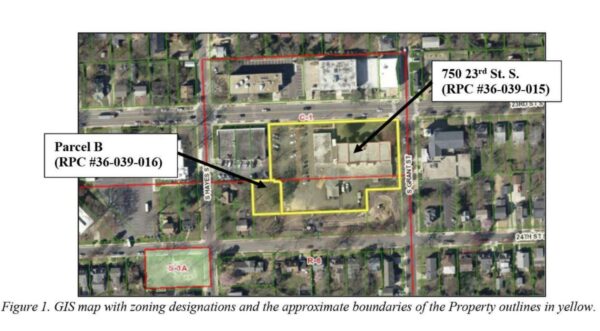
The property includes the tiny, .8-acre Nelly Custis Park. Long before the current iteration of the park was built, a project some objected to, the occupational center had to grant to the county an open space easement for a public park as part of the land swap.
The public easement and the park will stay, but Melwood is allowed to use the parcel to calculate how many units can fit in its proposed apartment building, Puskar said.


